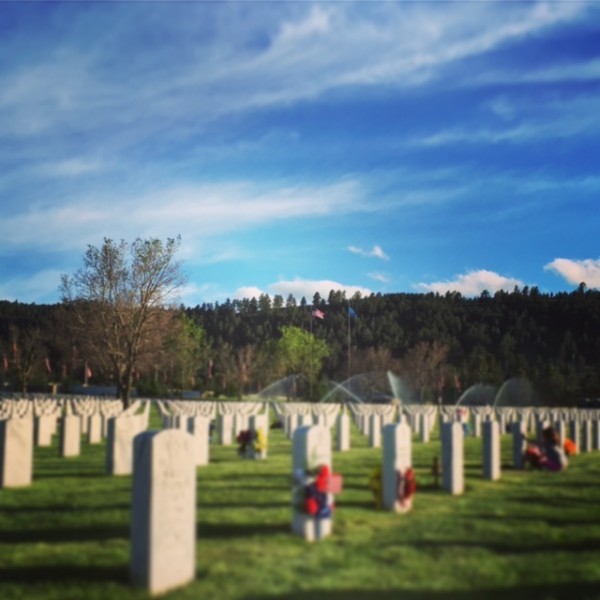
A friend from high school died this week. Everything we all hope to be, she already was. She left this world at 33, leaving behind so many who loved her fiercely.
I can’t count the number of funerals I have been to. I lost my dad at a young age. I have been to the funeral of my first prom date and to the funeral of a boy I had loved from the first day of kindergarten through graduation. I have watched friends carry the caskets of their babies. In my lifetime, I have experienced loss. We all have and we all will. The more loss I experience, the more I realize how difficult it can be to talk about grief.
I have never understood the phrase “So sorry for your loss.” Maybe it’s because I have experienced deep loss early in my life. Maybe it’s because I have dedicated the last 16 years of my life to studying expressive and receptive language. I love language and the power words can have on the world. Grief is hard to express, so incredibly hard. What if we found a way to express it in a way that others can understand? What if we found a way to say these words with depth and meaning?
I quit saying, “I’m sorry,” at funerals years ago. I know why people say it; they say it because at least it is something. It is acknowledging a loss, but ‘sorry’ is what I say to someone when I accidentally bump them with my shopping cart. I always felt that “Sorry for your loss,” would be fitting for a lost wallet, but not the love of your life or a parent you’ve never lived a day without.
When my dad died, I wanted someone to use words that made sense. I didn’t like the cliché sympathy card sayings. Actually, I couldn’t stand those sayings. Time wasn’t going to heal anything and while things might happen for a reason, I just wanted my dad back. My friends all had one and I didn’t understand why I was the one who didn’t. I wanted someone to say, “I know what it’s like to miss him on those big milestone days, but to miss him even more every day in between.” I wanted someone to say, “I know what it’s like to miss him when you drive by his office and his car isn’t there, but you still look just to make sure it’s not a bad dream. I know what it’s like to see a tie you know he would like, wishing you could buy it for him. I know what it’s like to watch your teammate’s dads walk into your volleyball game and you look up every time those doors open, even though your dad won’t be walking in.” The summer after high school, I sat next to my friend’s casket, alone in the funeral home before the visitation started. I wanted someone to acknowledge the way my heart hurt. I felt as if my heart had truly broken and “sorry for your loss” didn’t recognize that I would never hear his voice again. I wanted someone to say, “I know you are going to keep dialing his phone number for years to come, I’ve been there, too,” and “I know you’ll miss him all over again when there’s an inside joke or an event he was supposed to be at, and for a fleeting second you forget he isn’t here to share it.”
This week I will go to a funeral to say good-bye to one of the sweetest girls I ever knew. I was lucky to know her. I was lucky to call her a friend. I will tell her family that I loved her and that I will miss her. I will tell them that for years to come. I will make sure her husband knows that I will be cheering for their son at his future football games. I will make sure her best friends know I will be thinking of them when her birthday rolls around this fall and it’s the first year in 20 years that they haven’t spent it with her.
I wish that when people offered sympathy, the conversation would change. Rather than approaching someone to offer condolences, we would share a favorite memory and follow it with, “Moments like that are what I’m going to miss about him.” Maybe we could do more to check on grieving loved ones, not just in the days that follow, but in the months and years, too. The greatest thing we could do is not be afraid to mention their names. I love nothing more than hearing stories about my dad, whether I have heard them before or not. When you know there will never be a new memory, you never tire of the old ones. Maybe when we think of a grieving friend, we can actually take the time to let them know. When we say, “Sorry for your loss,” what we really mean to say is, “I’m sorry my life and schedule will resume when I leave this funeral, but your house will be dark and quiet when you return home. I’m sorry the household duties you once shared are now entirely up to you. I’m sorry that you’ll keep waiting for the sound of the garage door, wishing he would come walking through the door.” Maybe when we said, “I’m sorry,” we could find a way to really say it.
Grief is real and raw and deserves so much more than the empty cliché quotes. The memories we had left to make deserve to be said aloud.
This post comes from the TODAY Parenting Team community, where all members are welcome to post and discuss parenting solutions. Learn more and join us! Because we're all in this together.
